Are we stealing youth from the young?
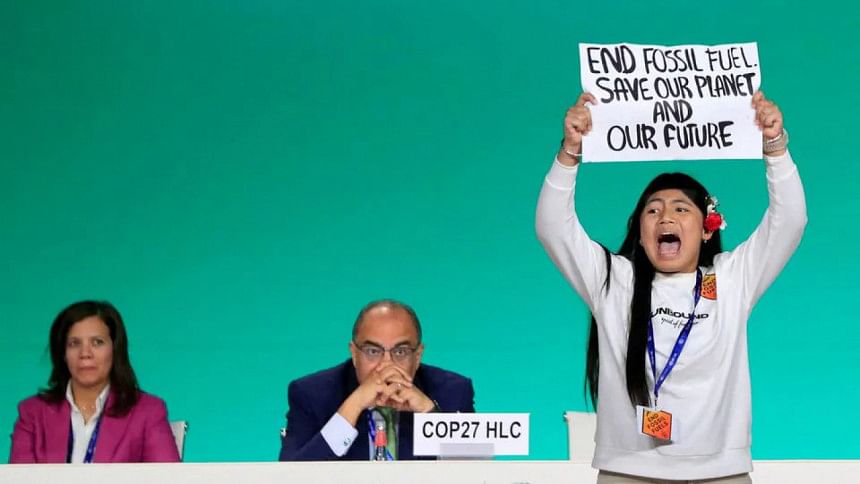
Witnessing the recent surge of youth engagement in social activism, especially in the climate change arena, two issues worry me often: Are we robbing youth from our young? And are we hiding society's structural failures by using the young as a shield?
Greta Thunberg-inspired Fridays for Future motivated youth from around the world to act as a new pressure group over the last five years. Youth-, student-, and children-led activism has been widely supported by NGOs and civil society organisations (CSOs) with foreign donors' money as well as organisational core funds. Youth and child leaders are now getting huge exposure through social media presence, extensive networking, and participation in virtual and in-person events, including the post-Covid annual Conferences of the Parties (COPs) on climate change in Scotland, Egypt, and the UAE, respectively.
Besides delivering emotional pitches, we should build the youth's capacity and skills in evidence-guided advocacy. Climate change is all about observed and predicted facts and figures; be it the changing intensity and frequency of our good old natural disasters or the flow of promised money from the developed to the developing countries. The youth should also be trained in ethics as they search for facts while avoiding misinformation, and learn to communicate relevant information to a target audience without being biased.
In today's world, once you are trusted to perform, others also get hold of you to represent the youth as a "poster person." This puts extraordinary pressure on young activists to perform and remain relevant. Being invited to various events validates one's work, and even existence. This rapidly changes young individuals into mini adults with excessive self-awareness and a politically correct vocabulary, making them part of a rat race with fellow activists, caught in the mazes of politics and bureaucracies. Thus, their youthhood is lost.
My second concern has arisen as government and non-government entities, and development partners seemingly promote youth engagement through tokenism, without any effort to empower the youth. One example of "youth-washing" in climate change discourse in Bangladesh is the exclusion of the Ministry of Youth and Sports from the government agencies receiving climate-relevant budgets. The National Adaptation Plan of Bangladesh 2023-2050 (NAP2050), on the other hand, mentions "youth" numerous times as a part of inclusive adaptation, alongside women, people with diverse gender identities, elderly people, ethnic communities, and persons with disabilities. The Youth-Led Adaptation Plan is identified as a part of the NAP2050's implementation, but its formulation and execution have a long way to go. The same is true for youth representation in the proposed National Technical Advisory Committee on Climate Change and in the revised structure of the District Development Coordination Committee for the NAP2050.
Given that the revision of the Bangladesh Climate Change Strategy and Action Plan (BCCSAP) 2009 and the finalisation of the Bangladesh Health-National Adaptation Plan have been pending for the last five years, it makes us wonder—with so many climate change plans on the table, how will the government ever prioritise implementing them, let alone focus on youth empowerment? Praising youth for their activism and giving them a seat at a roundtable—while strongly maintaining the status quo—therefore seem to be jumping on the bandwagon, often promoted by development partners.
One of the rationales behind encouraging youth activism is that climate change is a transgenerational crisis. But we have to simultaneously consider two pathways: 1) ensuring a continuous flow of young people to the system as former youths move on to older cohorts, and 2) making sure that the former youth participants take responsibility as experienced individuals. If we carry on doing what we are doing now, the first pathway would replenish the pool of young minds. But facilitating an effective transition from youth to adults is a big challenge. Should we create space so that the latter continue activism along with their chosen careers? Should they make activism their profession by establishing NGOs, think tanks, or CSO networks? Or should we just wait and watch the survival of the "fittest"?
I believe we need to consider and invest in four urgent issues.
First, we need to make our youth aware of how to take care of their mental and emotional health despite the attention, exposure, stress, and exploitation they will face. We should also help them realise the short- and long-term aspects of being successful, and the difference between participating in altruistic activism versus making a career out of it.
Second, besides delivering emotional pitches, we should build the youth's capacity and skills in evidence-guided advocacy. Climate change is all about observed and predicted facts and figures; be it the changing intensity and frequency of our good old natural disasters or the flow of promised money from the developed to the developing countries. The youth should also be trained in ethics as they search for facts while avoiding misinformation, and learn to communicate relevant information to a target audience without being biased.
Third, we should encourage the youth engaged in the climate change space to use their skills and expertise in other important sectors, such as biodiversity conservation and pollution management. In this way, the youth can be made aware of wider opportunities and make themselves useful in dealing with other crises.
Finally, for the above changes, we need to engage NGOs, CSOs, and other agencies working in the youth leadership arena to build a "community of practice" for youth leadership in climate change. These community members shall not only discuss challenges and exchange knowledge and experiences; they shall also work with government and non-government partners to improve the current ineffective and inefficient situation.
To nurture this community of practice and help it to take pragmatic actions, appropriate organisations can design and implement a long-term environmental youth leadership accelerator programme. This programme will facilitate the missing bits in the youth leadership space of Bangladesh, be it capacity building in science communication and leadership, drafting the Youth-Led Adaptation Plan, arranging mentoring on mental health, knowledge mobilisation and career development, or peer-to-peer learning and support systems to overcome persistent challenges. In this way, we can move away from paying lip service to youth activism.
Dr Haseeb Md Irfanullah is an independent consultant working on environment, climate change, and research systems; and is a visiting research fellow at the University of Liberal Arts Bangladesh (ULAB). Email him at [email protected]
Views expressed in this article are the author's own.
Follow The Daily Star Opinion on Facebook for the latest opinions, commentaries and analyses by experts and professionals. To contribute your article or letter to The Daily Star Opinion, see our guidelines for submission.

 For all latest news, follow The Daily Star's Google News channel.
For all latest news, follow The Daily Star's Google News channel. 

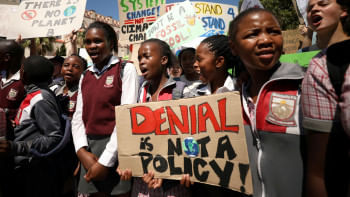
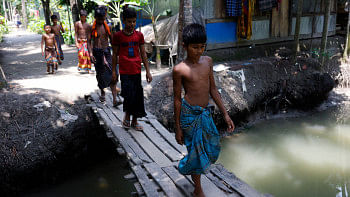



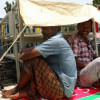

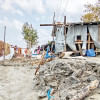
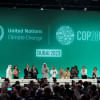

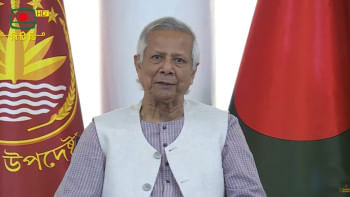
Comments